What is GENERAL Human Biology all about?
The General Human Biology course gives students a chance to explore how the human body works. Students focus on bones, muscles, nerves and hormones, and how they maintain the body to act in a coordinated manner. The causes and spread of disease and how humans respond to invading pathogens are studied, as well as the role of males and females in the process of reproduction. Students investigate the body systems through real or virtual dissections and practical examinations of cells, organs and systems. Second-hand data is used to investigate transmission of diseases from a historical perspective. Students are encouraged to use ICT to interpret and communicate their findings in a variety of ways.
Who should select these units in Year 11?
Students who are interested in how the human body works and seeking a career in nursing, paramedical, childcare or aged care
Pathway
Successful completion of this course will allow students to progress to General Human Biology in Year 12.
Areas of Study
UNIT 1 – HEALTHY BODY
- Characteristics of life
- Respiratory, circulatory and digestive systems
- Nutrition and diet
- Urinary system
UNIT 2 – REPRODUCTION
- Reproductive systems of males and females
- Pregnancy & reproductive technologies
- Sexually Transmitted Infections
- Cell division, Genetics & DNA
To provide for different learning styles a variety of assessment tasks are used. For each course of study tasks are selected from:
- Science inquiry: Practical
- Extended response
- Test
What is GENERAL Human Biology all about?
In this course, students explore bones, muscles, nerves and hormones and how they maintain the body to act in a coordinated manner. The structure and function of the musculoskeletal system provides for human movement, balance and growth as the result of coordinated actions. This is brought about by the interaction of the musculoskeletal system with the nervous and endocrine systems. Conditions affecting these systems, such as sporting injuries, hearing and vision defects, can result in a decrease or loss of function. Students investigate infectious disease, vaccines and immunology and the effects on the community and global health. Through dissections, students examine the musculoskeletal, nervous and endocrine systems and examine reflexes, vision, hearing and skin sensitivity. Students are encouraged to use ICT to interpret and communicate their findings in a variety of ways.
Who should select these units in Year 12?
Students who are interested in how the human body works and seeking a career in nursing, paramedical, childcare or aged care
Pathway
Successful completion of this course will allow students to progress to further education in the areas of aged care, nursing and medical assistant fields.
Areas of Study
UNIT 3 – COORDINATION
- Skeletal system
- Muscular system
- Nervous system
- Endocrine system
UNIT 4 – INFECTIOUS DISEASE
- Disease
- Vaccines and immunology
- Community and global health
To provide for different learning styles a variety of assessment tasks are used. For each course of study tasks are selected from:
- Science inquiry: Practical
- Externally set task
- Extended response
- Test

